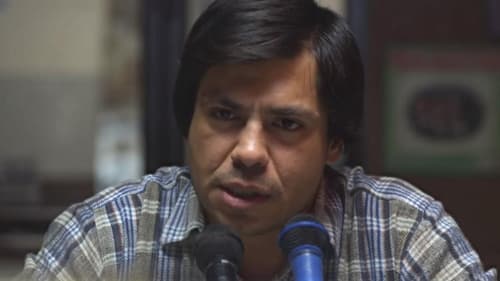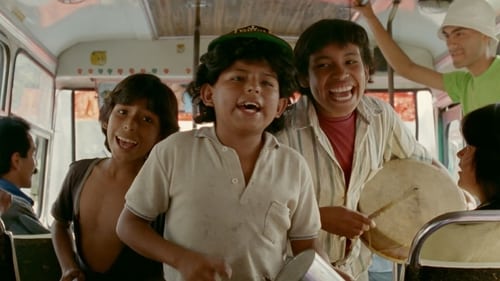
Alejandro Legaspi
출생 : 1948-03-27, Montevideo, Uruguay
약력
Born in Uruguay in 1948. In 1967 he studied painting at the School of Fine Arts. The following year he joined the Cinematheque del Tercer Mundo and collaborated as a cameraman on the documentary: The Flag We Raise and as an editor in A measles epidemic. In 1974 he emigrated to Peru where he formed the production company Marcha and devoted himself to making documentaries, among which the following stood out: And it remains silent and Hit that drawer. In 1979, in Nicaragua, he participated in Victoria de un pueblo en armas (documentary) and in the fiction feature Insurrección by Peter Lilienthal. He was also an advisor to the Nicaraguan Film Institute. In 1982 -with Stefan Kaspar, Fernando Espinoza, María Barea, Fernando Barreto- he formed the Grupo Chaski film collective in Lima. He worked as a cameraman, editor and director of documentaries such as Miss Universe in Peru, Peru ni leche ni gloria, Paths of liberation, Encounter of little men, Margot the circus, Crisanto el haitiano and co-directed feature films such as Gregorio (1984) and Juliana ( 1989). In the 90s he directed documentaries and fiction short films for the production company Verde Luna. Later, he directed the documentary Tiempo de memoria (2005), Dreams far away (2007), Otto Brun's The Haphazard Path of Faith (2012) and the fictional feature film The Last News (2014); among others. At the same time, he has served as a professor at the Catholic University of Peru and the Charles Chaplin Institute in courses on: filmmaking, journalistic documentary and photography direction. He, likewise, has been on two occasions a jury at the Havana Film Festival and a jury at the contest for film projects in Colombia, Uruguay and Peru.

Writer
In a town in the southern Andes in Peru, a DJ from a local radio station decides to start a news report to share the stories from the victims of the Maoist guerrilla of the Shinning Path, as well as the brutal repression from the police and military forces during the Civil War that took place in the 80s and early 90s in the country. Due to this risky job, he'll be seen as an "enemy" for both of the parties in conflict, jeopardizing the news report as well as his own life.

Director
In a town in the southern Andes in Peru, a DJ from a local radio station decides to start a news report to share the stories from the victims of the Maoist guerrilla of the Shinning Path, as well as the brutal repression from the police and military forces during the Civil War that took place in the 80s and early 90s in the country. Due to this risky job, he'll be seen as an "enemy" for both of the parties in conflict, jeopardizing the news report as well as his own life.

Writer
In 1987, 'Negro', 11 years old, and 'Gringo', one year younger, worked together like so many other children at Lima's Wholesale Fruit Market. In the short-film 'Little Men Meet' they shared with us their lives, jobs and dreams. We meet them again twenty years later. The country, their lives, jobs and dreams have changed. In 'Distant Dreams' the lives ou our cast members reflect upon the past, the present and the future of our country.

Director
In 1987, 'Negro', 11 years old, and 'Gringo', one year younger, worked together like so many other children at Lima's Wholesale Fruit Market. In the short-film 'Little Men Meet' they shared with us their lives, jobs and dreams. We meet them again twenty years later. The country, their lives, jobs and dreams have changed. In 'Distant Dreams' the lives ou our cast members reflect upon the past, the present and the future of our country.

Writer
Short film about "Yuyanapaq", the photo exhibition of the armed conflict in Peru, at Casa Riva Agüero, Chorrillos, Lima-Peru.

Director
Short film about "Yuyanapaq", the photo exhibition of the armed conflict in Peru, at Casa Riva Agüero, Chorrillos, Lima-Peru.

Director of Photography
Mary returns to Perú and her family with her previous film as a gift to her father, Lucho Jimenez, an eighty year old man with a lot of vitality. She proposes a caravan trip into his past, taking him to places where they spent their lives together, asking questions he never asked about his history, his family's history and his mother's death. During the filming of the movie, Mary learns that her father has a new engagement to a woman much younger than him and that he is about to adopt his new wife's child who was given to another family.

Director
Juliana tells the story of a little girl who dresses like a boy to join a gang that her brother is in. The story shows the reality of young kids that join gangs.

Director
Documentary on child labor.

Editor
Documentary presenting the theory and application of the Theology of Liberation via interviews to priests from humble parishes in the slums of Lima. A fruitful labor of a Catholic Church sector committed to address social issues.

Director
Documentary presenting the theory and application of the Theology of Liberation via interviews to priests from humble parishes in the slums of Lima. A fruitful labor of a Catholic Church sector committed to address social issues.

Cinematography
Documentary presenting the theory and application of the Theology of Liberation via interviews to priests from humble parishes in the slums of Lima. A fruitful labor of a Catholic Church sector committed to address social issues.

Cinematography
Gregorio, a boy from the impoverished countryside of Peru emigrates to Lima, the capital city. Experiencing a cultural shock due to the chaotic nature of the city, he must challenge himself to learn Spanish, since his native tongue is Quechua, and survive in this whole prejudiced new world. A hostile world for poor immigrants.

Director
Gregorio, a boy from the impoverished countryside of Peru emigrates to Lima, the capital city. Experiencing a cultural shock due to the chaotic nature of the city, he must challenge himself to learn Spanish, since his native tongue is Quechua, and survive in this whole prejudiced new world. A hostile world for poor immigrants.

Camera Supervisor
This movie is about the liberation by the Sandinistas of the Anastasio Somoza regime in NIcaragua. The movie covers some of te key points in the fight for León, a city close to the capital Managua, and the first liberated territory. Many of the inhabitants of León who participated in the guerrilla and members of the sandinista army participated in the film.

Cinematography
It is a documentary that shows the work of film workers in the different areas of distribution and exhibition that allow films to reach viewers. In addition, it testifies to the preferences of the cinematographic public in the years of 1983.

Director of Photography
A record of the founding act of the Frente Amplio political party in 1971.





